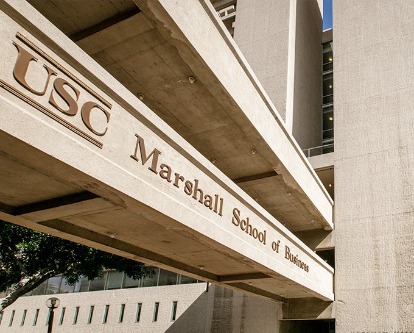
Marshall Faculty Publications, Awards, and Honors: October 2023
We are proud to highlight the amazing Marshall faculty who have been recognized this month for their leading-edge work and expertise.
T.J. Wong is an expert on accounting and corporate governance in emerging markets. He has published numerous articles in top accounting and finance journals. He is currently the associate editor of Management Science and has served as an editor for The Accounting Review and in the editorial board of several accounting journals. His research is frequently featured in media outlets including the Wall Street Journal, The Economist, The Globe and Mail and South China Morning Post. Prior to joining USC, he served as the Dean of the CUHK Business School from 2008 to 2013.

Areas of Expertise
Programs
Departments
NEWS + EVENTS
Marshall Faculty Publications, Awards, and Honors: October 2023
We are proud to highlight the amazing Marshall faculty who have been recognized this month for their leading-edge work and expertise.
Marshall Faculty Publications, Awards, and Honors: August 2023
We are proud to highlight the amazing Marshall faculty who have received awards this month for their groundbreaking work.
RESEARCH + PUBLICATIONS
We develop an empirical proxy for companies’ differential communication to local and foreign investors using translation differences in public disclosure. We use a field experiment to validate that our proxy is associated with differences in the information firms provide in response to private inquiries from local and foreign investors, and document that differential communication is associated with increases in information asymmetry. It is also linked to decreases in the relative information quality of foreign analysts, even in cases when foreign demand for information is high and communication costs are low. These and a variety of supporting tests lead us to conclude that firms use differential communication intentionally because of in-group favoritism, and when catering to different investor groups in order to maximize stock price. This study highlights the role of differential communication as one driver of local information advantage.
Relational economies rely on locally-based social networks for contracting. We posit that auditor locality specialization is an important competency for understanding client firms’ social networks and auditing their relational contracts. However, specializing in a locality may lead to collusion with clients, thereby weakening auditor independence and reducing audit quality. Using Chinese data, we find that the clients of engagement partners with greater locality specialization are less likely to report financial reporting irregularities (as captured by misstatements and accounting-related fraud). Further, this result is stronger for clients with more relational contracts and clients who are subject to greater external monitoring. In addition, locality specialists are more accurate in issuing modified opinions to clients that subsequently report financial reporting irregularities. Taken together, our findings suggest that the improvements to auditor competency from locality specialization outweigh the potential costs of reduced independence.
This paper examines whether social media moderates the information bias in the market by generating less optimistic information when the state-controlled traditional media is positively biased. Using a comprehensive sample of corporate news articles of Chinese newspapers and posts of an online stock forum, East Guba, from 2009 to 2016, we find that East Guba’s tone is less positively associated with that of the newspapers for the same firm on the same day when the newspapers are expected to be more optimistically biased. This decline in association in tone is significantly larger since the 2015 political shock which increased the suppression of negative corporate news by traditional media. Finally, when the tone of the newspapers deviates positively from that of East Guba, the newspaper articles are perceived by the market to be less credible as reflected in the significantly attenuated stock return response.
Prior research documents that official newspapers in China publish business news articles that are more positively biased and contain greater political content, and as a result, are relatively less informative than articles published by non-official newspapers. We posit and find that despite these political biases, official newspapers serve an important informational role by providing more value-relevant industry and market wide information to the market than non-official newspapers. We also show that the strength of this information role varies based on the political proximity of the newspaper to the central government and intensifies during highly politicized time periods.
When emerging market firms disclose relationship-based transactions, they face a trade-off in which greater transparency may help lower their cost of capital at the cost of revealing proprietary information. We find that firms overcome this challenge by relying on analysts within their private networks (i.e., connected analysts) who, through repeated interaction, can better verify relationship-based transactions. Using Chinese firms, we show that firms with more connected analysts have more accurate consensus forecasts and lower forecast dispersion. When a connected analyst departs and stops covering a firm, the accuracy and informativeness of the unconnected analysts’ forecasts decrease, suggesting information spillovers from a connected analyst to analysts outside the private network. We find a potential mechanism through which information spillover from a connected analyst occurs: through common institutional clients. The findings suggest that embedded financial analysts—those who share close connections with firms and analysts—serve as a channel for disseminating proprietary, hard-to-verify information.
COURSES